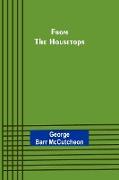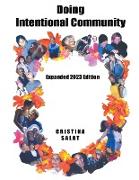"Perhaps I Will Tell You Lies"
BücherAngebote / Angebote:
Seminar paper from the year 2009 in the subject English - Literature, Works, grade: 1, 0, University of Göttingen (SEP), course: Representation of History in Contemporary British and Postcolonial Literature, language: English, abstract: [...] A reviewer once has called Alias Grace "the doctoral dissertation that Atwood did not complete, a tour de force rendition of nineteenth century Canadian social life." In fact, the authoress had done some proper historical research, and definitely the better part of the novel's attraction "emanates from its basis in the truth, and the sheer impossibility of tracking down that truth."
The title itself already alludes to the difficulty of finding out the true identity of the historical person Grace Marks:
"The title signals a disturbing absence of the original behind the name. [...] This novel recognizes that no written [...] history allows either the real women's voice nor the true story of the past to be recovered."
The traditional modernist view of history depends on a belief in and a pursuit of objectivity. In her novels, Atwood often challenges these modernist views. As a consequence, the reader is rather confronted with different, even contradictory versions of one and the same story. Until its very end the novel refuses to deliver an unambiguous and unmistakable reconstruction of the events at Richmond Hill. So Alias Grace is not only concerned with history just because the plot is set in the past, but also the issues 'memory', 'historical truth' and the 'reconstruction of historical events' form a thematic constellation that plays a crucial role in the novel. The aim of this paper is supposed to discuss the question of how Atwood deals with the representation of history and historical 'truth' in her novel Alias Grace, thus offering a general questioning of the truthfulness and objectivity of historical accounts.
For this purpose it seems to be appropriate to touch on briefly the narrative construction of the novel. The prominent role reconstruction of history plays in the novel, becomes already apparent in the fact that the better part of the plot is set nearly two decades after the events that are to be reconstructed, so that any occupation with the murders in the novel itself must be a retrospective one.
Not one single narrator, but a "plethora of voices" unfold the story in a multiperspective narrative situation. After having introduced the most influential recent theoretical concepts on the relationship of historical and literary writing, each narrative perspective is to be discussed in more detail in the following chapters to find out how they all work together in a kind of "narrative patchwork." [...]
Aus der Einleitung
Folgt in ca. 10 Arbeitstagen




